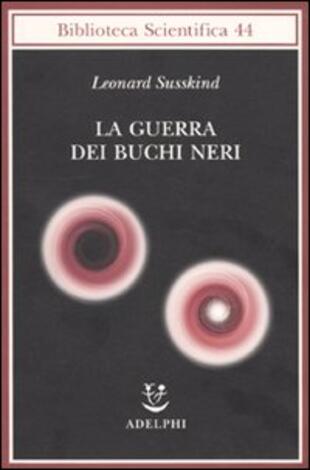

Sinossi
Stringhe, brane, dimensioni nascoste, universi multipli... La fantasia della fisica del ventunesimo secolo sembra senza limiti. Uno dei suoi interpreti è il fisico di Stanford Leonard Susskind. Nel suo "Il Paesaggio cosmico" descriveva la prospettiva vertiginosa di una moltitudine di differenti universi, nicchie di un inimmaginabile multiverso, o "paesaggio", ciascuna governata da specifiche leggi fisiche: per caso, una era adatta a ospitarci. In questo nuovo libro il cosmo di Susskind diventa ancora più bizzarro. Con la loro capacità di fagocitare qualunque cosa, i buchi neri erano già abbastanza angoscianti, ma per qualche tempo ai fisici si è prospettata addirittura la possibilità che questi vortici cosmici, ricavati dalle equazioni di Einstein, fossero divoratori di ordine e di informazione, oltre che di materia. Negli anni Settanta, Stephen Hawking ha mostrato che i buchi neri "evaporano", emettono cioè radiazione termica, e rimpiccioliscono nel corso del processo sino a scomparire. Ne discendeva una domanda cruciale: l'informazione inghiottita dal buco nero riemerge oppure no quando il buco nero scompare? Hawking non aveva dubbi: "L'informazione viene cancellata per sempre". A Susskind quell'affermazione è apparsa come una dichiarazione di guerra. Se Hawking aveva ragione, infatti, sarebbe stata la fine del determinismo quantistico, la violazione del fondamentale principio secondo il quale anche nell'informazione nulla si crea e nulla si distrugge.
- ISBN:
- Casa Editrice:
- Pagine: 418
- Data di uscita: 07-10-2009

